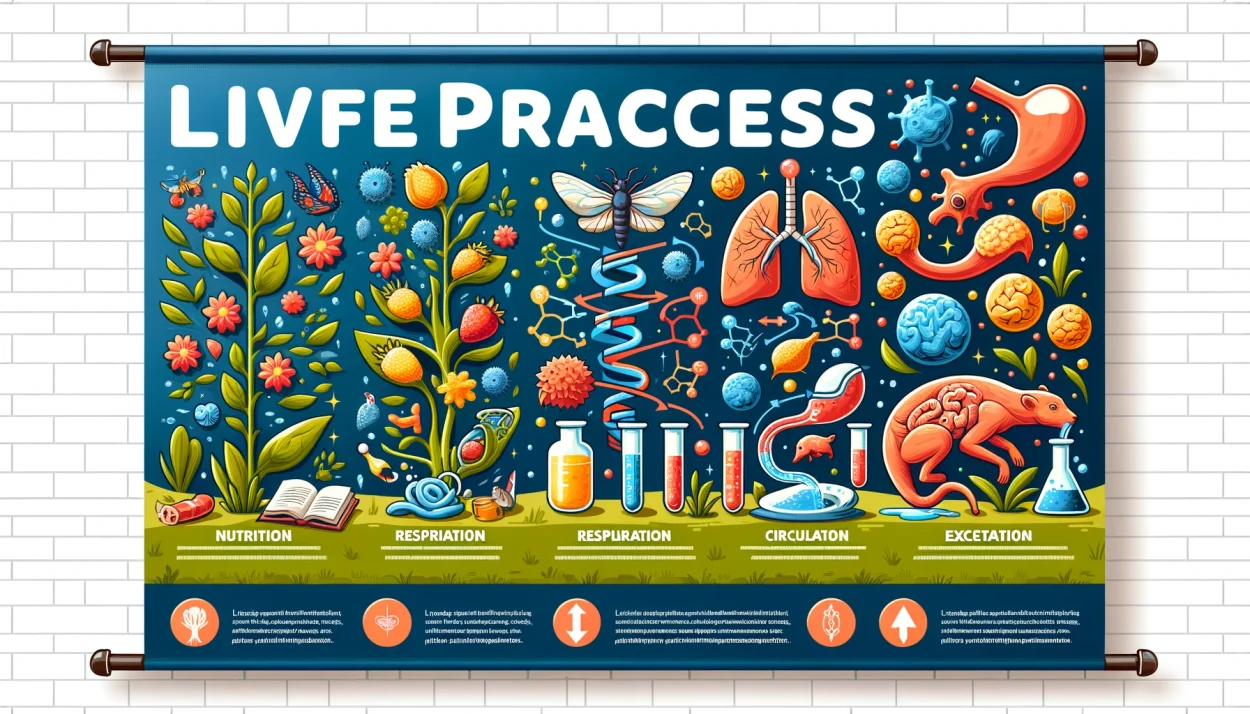
Unveiling the Mystery of Life Processes in Living Organisms

Unveiling the Mystery of Life Processes in Living Organisms
Life processes constitute the basic functions performed by living organisms to maintain and sustain life. These processes are fundamental to the survival of all living beings and encompass several vital activities, including nutrition, respiration, circulation, and excretion. This article delves into the intricacies of these life-sustaining processes, highlighting their importance in the biological world.
Nutrition: The Foundation of Life
Nutrition involves the intake of food and its conversion into energy and nutrients necessary for life. Organisms adopt various methods for nutrition, categorized mainly into autotrophic and heterotrophic nutrition. Autotrophs, like plants, synthesize their food through photosynthesis, using sunlight, carbon dioxide, and water. Heterotrophs, including humans and animals, depend on other organisms for their food. The process of nutrition not only provides energy but also supplies essential nutrients for growth, repair, and development.
Respiration: Releasing Energy from Food
Respiration is a critical process by which organisms break down glucose molecules to release energy. This energy is vital for various cellular activities. Respiration can be aerobic, involving oxygen, or anaerobic, without using oxygen. Aerobic respiration yields more energy and occurs in the mitochondria of cells, whereas anaerobic respiration takes place in the cytoplasm and is less efficient. The energy released during respiration is stored in the form of ATP (adenosine triphosphate) molecules, which are used by the cells to perform various functions.
Circulation: Transporting Nutrients and Oxygen
Circulation involves the movement of substances like nutrients, gases, and wastes within an organism. In humans and other multicellular organisms, this is facilitated by a complex circulatory system comprising the heart, blood, and blood vessels. This system ensures the efficient transport of oxygen and nutrients to cells and the removal of carbon dioxide and other metabolic wastes. Plants, though lacking a circulatory system, transport water, minerals, and food through specialized tissues like xylem and phloem.
Excretion: Eliminating Metabolic Wastes
Excretion is the process of removing metabolic wastes and toxic substances from an organism’s body. These wastes include carbon dioxide, urea, and salts, which, if accumulated, can be harmful. In humans, the excretory system, consisting of the kidneys, ureters, bladder, and urethra, plays a pivotal role in filtering blood and eliminating wastes through urine. Plants excrete waste products through their leaves, roots, and other organs.
Conclusion
The life processes of nutrition, respiration, circulation, and excretion are interconnected and essential for the maintenance of life. They work in harmony to ensure the survival, growth, and reproduction of organisms. Understanding these processes provides insight into the complex yet fascinating mechanisms that sustain life on Earth, underscoring the intricate balance of the natural world.